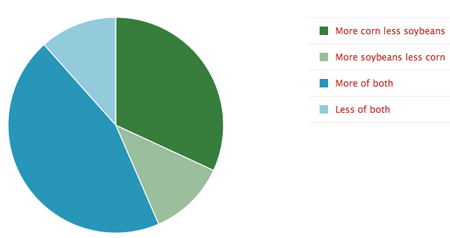A report from Rabobank’s global Food & Agribusiness Research and Advisory department is looking at the future of ethanol from the perspectives of both Brazilian and United States markets.
 Rabobank first points out significant changes in U.S. ethanol policy starting in 2012. The VEETC blending credit and a tax on ethanol imports both expired in December 2011 and U.S. ethanol industry groups have shifted their political weight toward initiatives like E15 and advanced biofuels.
Rabobank first points out significant changes in U.S. ethanol policy starting in 2012. The VEETC blending credit and a tax on ethanol imports both expired in December 2011 and U.S. ethanol industry groups have shifted their political weight toward initiatives like E15 and advanced biofuels.
Although these developments improve Brazil’s access to the U.S. ethanol market in 2012, the reality is that the Brazilian cane industry may struggle to fully satisfy even its own domestic demand in 2012 owing to a sharp downturn in cane production and an uncertain outlook for output growth.
Brazil became the leading importer of ethanol from the U.S. in 2011.
“Despite the expiration of the tax credit and currently negative margins, we expect U.S. ethanol production to increase slightly in 2012 as an increase in mandated levels of production offsets what we expect to be a decline in exports,” says David C. Nelson, Global Strategist for Grains & Oilseeds with Rabobank’s Food & Agribusiness Research and Advisory group. “The outlook for exports is heavily dependent upon what happens with the sugar crop in Brazil, the U.S.’s biggest export competitor. Rabobank’s outlook for higher U.S. ethanol production is also predicated on regulatory approval for E15. If E15 is adopted by just 10 Midwest states, that will alleviate current blend wall restrictions.”
Andy Duff, Global Strategist for Sugar and Head of Rabobank’s Food and Agribusiness Research and Advisory Group in Brazil, adds, “Rabobank believes that the abolition of the U.S. import tariff on ethanol represents a significant opportunity for the Brazilian cane sector in the medium to long term. However, in the next few years the focus of the Brazilian industry is likely to be keeping up with the growth of potential consumption in the domestic market, which will continue to rise as a result of expansion of the flex-fuel fleet.”
Read more of Rabobank’s future outlook for ethanol in the United States and Brazil.







 “I think more of that will happen when we know more about who controls the Senate and the House, and who’s the president and where the EPA is on all this after November,” said Bill Lapp of
“I think more of that will happen when we know more about who controls the Senate and the House, and who’s the president and where the EPA is on all this after November,” said Bill Lapp of  “If you took a poll of our members, and we may well do that at our Commodity Classic next week, I would say that they view the RFS as more important than the farm bill,” said
“If you took a poll of our members, and we may well do that at our Commodity Classic next week, I would say that they view the RFS as more important than the farm bill,” said  Corn growers are now gathering this week in Nashville for the Commodity Classic, and NCGA president Garry Niemeyer of Illinois says there is a lot of truth in the idea that the RFS is more important to them than the farm bill. “The Renewable Fuel Standard is really what sets the basis for where we are with ethanol,” said Niemeyer. “We’ve worked very hard to make sure that we have a very good Renewable Fuel Standard bill and it is a road map for our future with ethanol.”
Corn growers are now gathering this week in Nashville for the Commodity Classic, and NCGA president Garry Niemeyer of Illinois says there is a lot of truth in the idea that the RFS is more important to them than the farm bill. “The Renewable Fuel Standard is really what sets the basis for where we are with ethanol,” said Niemeyer. “We’ve worked very hard to make sure that we have a very good Renewable Fuel Standard bill and it is a road map for our future with ethanol.”
 Brazil is reportedly planning to pump $38 billion into its ethanol sector to help increase production.
Brazil is reportedly planning to pump $38 billion into its ethanol sector to help increase production.